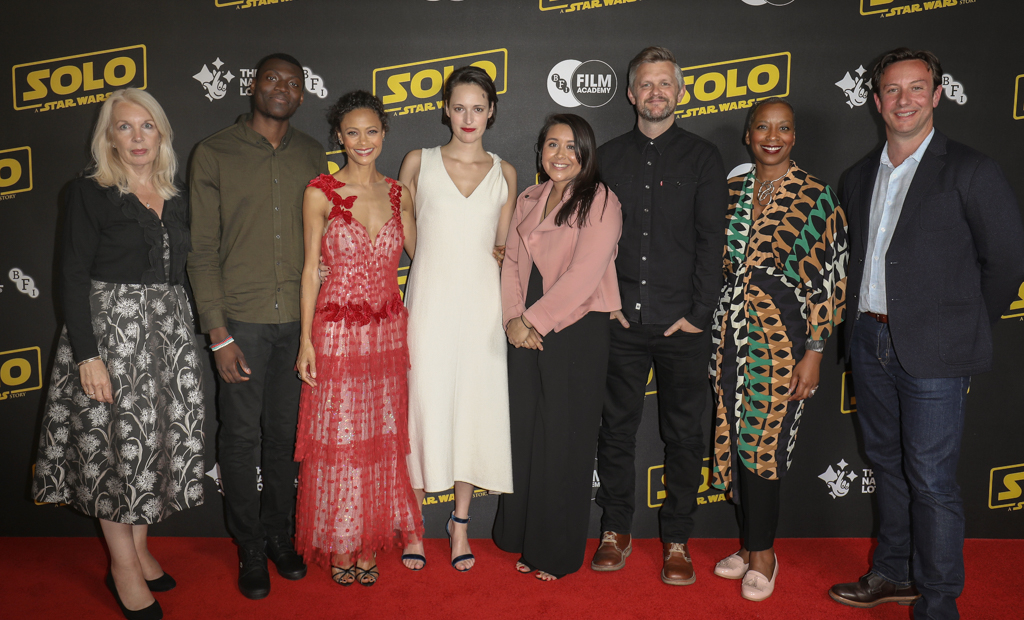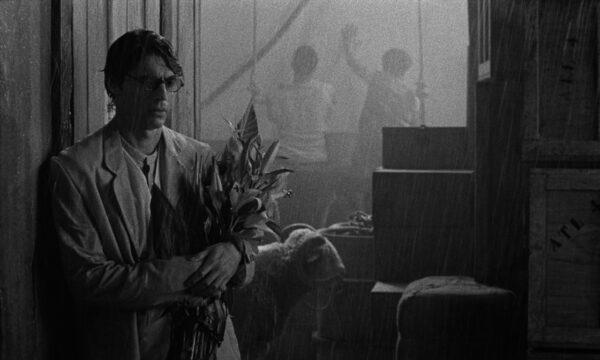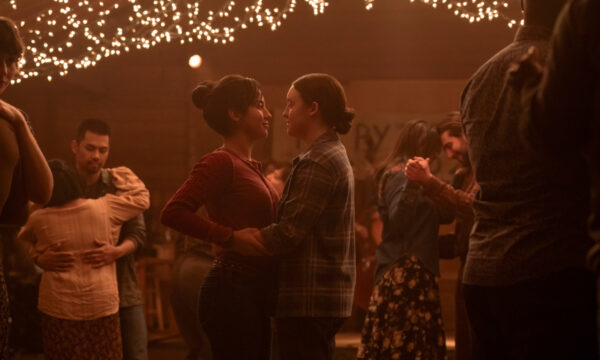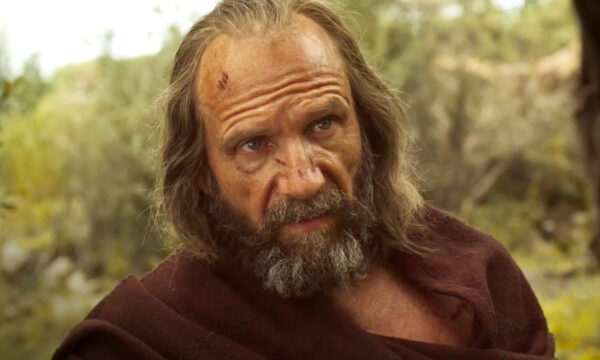BFI announce film trainee programme with Lucasfilm at Solo: A Star Wars Story special screening

Last night at the BFI Southbank, on top of treating guests to a special presentation of Solo: A Star Wars Story, the British Film Institute and Lucasfilm announced the next round of the pioneering BFI Film Academy Future Skills programme. Designed to open up opportunities in the film industry to under-represented young people from all over the UK, the programme will have places for 30 new participants – mostly alumni from the BFI Film Academy – to work as paid trainees in a variety of craft and technical roles on the next Star Wars film, Episode IX, which will begin filming at Pinewood from July 2018.
This new intake follows a hugely successful pilot of the programme with Lucasfilm on Solo: A Star Wars Story in 2017, which placed 28 trainees in production roles ranging from sound and lighting to art department and camera. The prequel itself, which hits UK cinemas from 24th May 2018, tells the story of a young Hans Solo before he imparts on the adventure we all know and love. Actresses Phoebe Waller-Bridge and Thandie Newton were in attendance, sharing their experience working on the film and discussing the importance of on-set diversity for the future of the industry.
Producer Simon Emanuel, who also was present at the event, opened up about the challenges the team faced in attempting to respect a classic story whilst still expanding it.
But much of the focus last night was placed upon the next generation of film creatives. The BFI Future Skills programme is an example in industry-led training with a specific focus on giving young people from under-represented backgrounds the opportunity to work in film. In the first programme, 75% of the trainees were women, 45% came from BAME backgrounds, 68% were recruited from outside Greater London, and 36% received free school meals – a socio-economic measure. Since completing Future Skills, many of the trainees have gone on to work on other productions including Artemis Fowl, Wonder Woman 2, Blinded by the Light, Men in Black, Dr Doolittle, Mary Poppins, Pinocchio and Star Wars Episode IX.
Ben Roberts, director of the BFI Film Fund and one of the architects of the programme alongside Lucasfilm, described how and why the programme came into existence.
Two of the trainees who participated in the programme, Nathan Lloyd and Maria Moss, discussed their personal experiences applying for the opportunity and then working on the set of Solo: A Star Wars Story.
Margot James, minister for digital and the creative industries, applauded the accessible nature of the programme: “It is great to see the British Film Institute continuing to lead the way in creating a more diverse and inclusive workforce for our thriving film industry. Diversity is not only the right thing to do but it also makes good business sense.”
Jason McGatlin, Lucasfilm SVP of physical production and executive producer for Solo: A Star Wars Story, also stressed the importance of the initiative: “This programme is so important in bringing more diversity behind the camera, which is vital if we are going to have films that represent the world we live in. The BFI Film Academy trainees took on their roles with great passion and commitment and it’s wonderful to see so many of them moving on to future careers in the industry. It’s been so successful that we are delighted to be working with the BFI on the next round of the programme with new trainees for Star Wars: Episode IX.”
BFI CEO Amanda Nevill acknowledged the importance of working with such influential collaborators: “I have often said that talent is everywhere, but the opportunity isn’t. This brilliant and pioneering programme with Lucasfilm proves it’s true. I thank them for having the foresight to give these incredibly talented young people a genuine opportunity to develop their skills and confidence and learn from the very best on one of the most iconic film franchises in the world. Film and television are booming but its success depends on bringing more skilled workers to the industry and, crucially, ensuring the workforce is truly diverse and inclusive.”
The programme offers progression, experience and networking opportunities for all the trainees that participate. A dedicated alumni officer is on hand to provide support and care throughout the programme, with regular mentorship from respective heads of departments. Roles across physical production will include production, art department, camera, costume, hair & make-up, sound, video DIT and visual effects (VFX). In addition to these, new roles will also be sought in the following departments: grips, script, accounts and special effects (SFX). Upon completion of the programme, alumni officers, heads of department and the BFI work with the individual participants to plan and support their next steps. The aim is that trainees will be recommended for other jobs.
At the end of the second round, almost 60 talented trainees will have completed the pilot BFI Film Academy Future Skills programme, providing us with a deep insight into the challenges and opportunities of recruiting and developing young people for a career in the film industry – a key point in the BFI’s Future Film Skills strategy – and offering a proven model for entry-level trainee recruitment.
The editorial unit
Photos: Tim Whitby/Getty Images
For further information about the BFI Film Academy visit their website here. Solo: A Star Wars Story is released nationwide on 24th May 2018. Read our review here.
Watch the trailer for Solo: A Star Wars Story here:

























Facebook
Twitter
Instagram
YouTube
RSS